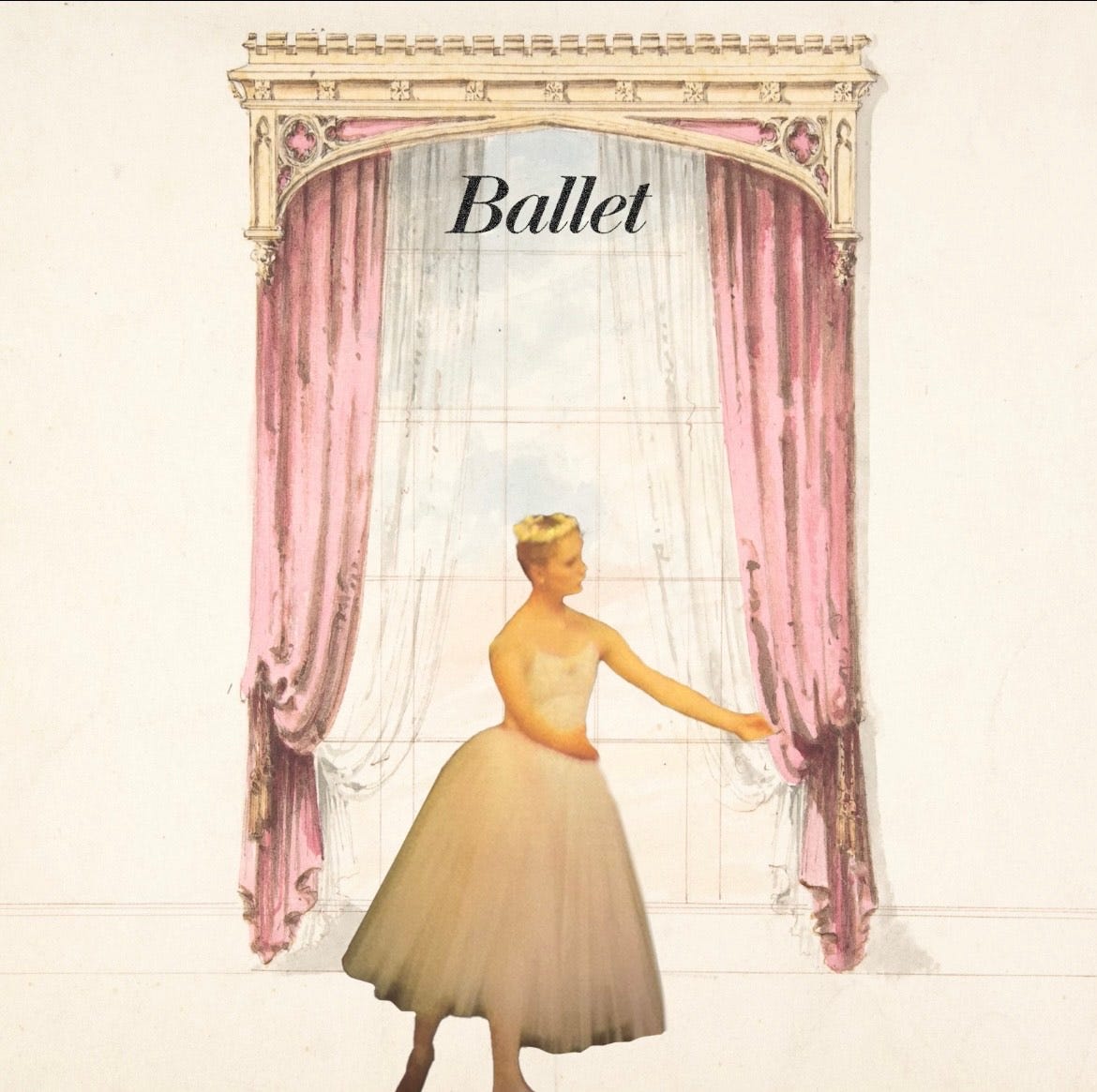Issue 27: fairy dust
Welcome to The Band Bible! I’m truly glad to have you here. If you’re a new reader, purpose of this newsletter is to address, break down, and shine a light on the business of being in a band. Each issue, we do this by interviewing (and celebrating!) someone who is making waves through their incredible work with or for independent artists. Sometimes, we interview independent artists themselves. Learning the business of being in a band is something that is often inaccessible or shrouded in mystery, and it shouldn’t be, so I hope The Band Bible is able to play even a small role in helping to change that.
Here it is, this month’s bonus issue. This one is incredibly special to me because for the first time ever, I have the pleasure of saying that the interviewee is my little brother.
Yep, I’m the proud older sister of fairy dust. It’s the electropop solo project of my brother, Connor. He started it around the time his former band, Goodie Bag, was beginning to wind down. He always had a passion for electronic music but lacked an outlet to create it, so fairy dust was born. It’s been great to see him grow and challenge himself through fairy dust, and to see audiences subsequently connect with his work as a result.
After three years of releasing singles and EPs, the debut fairy dust album, Ballet, came out last Friday. Two years in the making, Ballet was originally intended to be another EP. Originally conceptualized as collection of electronic ballet scores, Connor soon scrapped this idea after creating what would become the album’s title track (“kiss me when the night ends”), which was when he was inspired to turn his idea into a pop album instead. For the first time in a fairy dust release there’s guitar and/or bass guitar on almost every track, and Ballet also marks the first time that Connor sings on every track too. However, per the title, the pop elements of the record are still blended with the delicacy and ethereal nature that’s associated with its namesake.
From a sisterly perspective, watching fairy dust grow has been surreal. It’s weird, in the coolest way possible, to think that my little brother is now an adult with fans. When it came to wanting to put this issue together, celebrating the release of Ballet and my pride in how far Connor has come served as only one driving factor. Primarily, it’s because he’s a working independent artist. Like so many, he juggles a full-time job with his creative work. He has had big successes, but those big successes have come alongside a normal lifestyle. He’s one of the many who are grinding away at their project, on their own, on their own time.
So, on that note, I’ll metaphorically pass the mic over to him. I hope you enjoy the interview.
What inspired you to move away from electronic music on this record?
I wanted to make a pop album. I love pop music and wanted to make a whole project of it. While I still incorporate electronic elements on the album, it’s much different than the [IDM] stuff I used to put out. I wanted to sing and write pop songs, so I did that on this project.
How did you come to call the record Ballet?
Originally, Ballet was going to be an instrumental ep of electronic music that sounded like a ballet score. I started to make what eventually turned into the title track, and then decided I wanted to sing on it. So I made that, had fun with it, and decided to make a whole album.
For the first time, you’re singing on every song. How did you arrive at the decision to do that, and what was the experience like?
I’ve never been a great singer, which is why I hadn’t put out a lot of music I sang on in the past. Eventually, I became better at singing, especially in the upper register, to the point where I felt confident enough to start singing on tracks. It was fun but frustrating. I’m still not a great singer, so it takes me a lot of takes to get something I’m happy with.
While this isn’t the case on Ballet, you’ve done a lot of collaborations in the past. Do you have any advice for other artists about choosing and/or connecting with potential collaborators?
Work with people whose tastes are similar to yours.
You’re known for having a distinctive visual style. How did you come to develop it, and what was the process like in choosing visuals for Ballet?
I love going to thrift stores and antique malls. I see cool things at these places and have a desire to make little worlds out of the things that interest me. I walk around these kinds of stores for inspiration and buy or take pictures of things to incorporate into my visuals. It’s all about building little worlds of knick knacks and oddities to accompany the music. For Ballet I went for a “coquette” aesthetic somewhat.
What can you tell us about the lyrical themes on the album? Which topics were you drawn to writing about and why?
My biggest inspiration lyrically is The Beatles. The Beatles wrote a lot of love songs so naturally, with them being my biggest influence, my lyrics follow suit. I don’t care too much about lyrics, though. I just want them to assist in conveying the emotion that the music does. I wanted the lyrics to have a sense of yearning and whimsy because that’s how the music felt to me.
You were behind a viral hit with your former band. Has that experience influenced your approach to your creative process in any way?
No.
What’s next for you?
I will work on my next album, Masquerade.
I will also probably make a music video or two for songs on Ballet.
Lastly, which “commandment” would you like to leave behind in The Band Bible?
Have fun, be yourself, and don’t overthink things too much.
Thanks to Connor for taking the time to share his answers. To keep up with him, click here for Instagram and here for TikTok.





